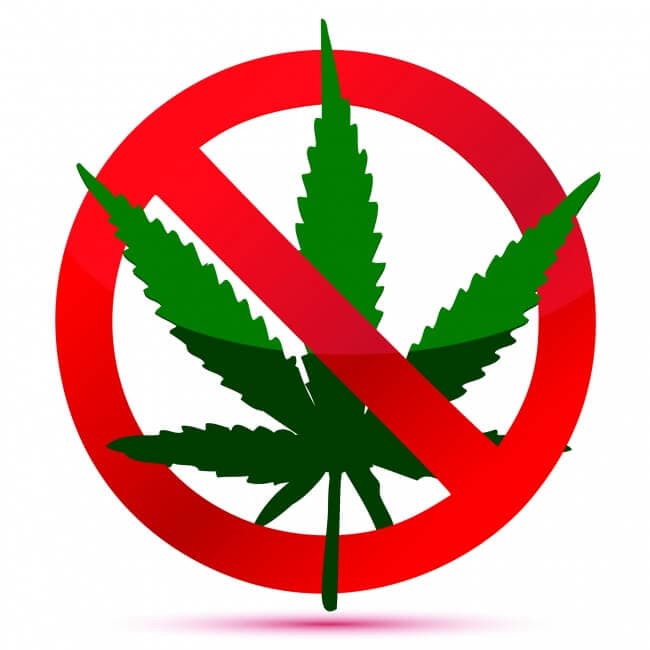One State Says ‘No’: Voters Reject Marijuana Legalization in Ohio
 As states across the country consider legalizing marijuana for recreational and/or medicinal use, one state has taken a firm stance against use of the drug for any reason.
As states across the country consider legalizing marijuana for recreational and/or medicinal use, one state has taken a firm stance against use of the drug for any reason.
The Associated Press reports that about 65 percent of Ohio voters rejected a ballot proposal to legalize marijuana for medical or recreational use. If passed, the measure would have made changes to the state constitution and created 10 sites exclusively growing marijuana that some termed a “marijuana monopoly.” Called Issue 3, the proposal would have also made it legal for adults over the age of 21 to use, grow, and/or buy marijuana in limited amounts and would have legalized the medicinal use of marijuana as well.
As of this writing, about half the states in the country have legalized medical marijuana, and four states plus the District of Columbia have legalized marijuana for recreational use.
Though many politicians these days are in support of marijuana legalization on some level, the Governor of Ohio, John Kasich, was happy with the decision that voters made. He said: “At a time when too many families are being torn apart by drug abuse, Ohioans said no to easy access to drugs and instead chose a path that helps strengthen our families and communities.”
But some suggest that the move wasn’t against marijuana legalization in general but a move against the creation of a marijuana “monopoly, oligopoly, or cartel.”
Curt Steiner is Director of Ohioans Against Marijuana Monopolies. He said: “Issue 3 was nothing more and nothing less than a business plan to seize control of the recreational marijuana market in Ohio. Issue 3 was designed and built primarily to garner massive and exclusive profits for a small group of self-selected wealthy investors.”
Managing the Business of Marijuana
For many, the issue of marijuana legalization is less a question of social responsibility and family welfare, and more of a dollars-and-cents discussion. Legalized marijuana is taxed marijuana, and states stand to gain a fair amount of tax income from every part of the distribution and production line as well as end-use consumer taxes.
However, there is a great deal of costs that go into the research and development aspect of a new industry. Even with a few states having already paved the way, much more work is needed to better understand the impact of marijuana legalization on all aspects of state government and business, and the costs incurred in those sectors. Additionally, there are increased costs to states, as they have to pay state officials to manage applications for licenses and ensure compliance with state law as well as deal with increased need for law enforcement, court services, and healthcare services as a result of increased use of the drug among residents.
The question for many is not necessarily whether or not it is a good idea to increase access to marijuana but whether or not it will lead to a net profit that will benefit residents. For that reason, the focus on preventing the so-called “marijuana monopoly” suggested by the bill may have been the true issue driving the campaign against Issue 3.
Priorities
Though there are important issues to be considered when it comes to the regulation of marijuana business if the drug is legalized for any use in any state, the social impact of widespread use of the drug and changing perceptions regarding the safety of its use should be considered as well. Some issues to be deliberated include:
- Use of marijuana by teens and young adults: Though the law in states that have legalized the drug make it clear that the minimum age of use is 21 for recreational purposes and 18 in some states for medical use, legalizing marijuana means that more of the drug is available to all age groups, including young people. This is concerning because the brain is in constant development until a person’s mid-20s, and regular use of marijuana by young people has been shown to cause a loss of IQ points.
- Accidental use of marijuana by young people: Marijuana edibles – or cookies and candies that are laced with the active ingredient in marijuana, THC – are popular in states where marijuana is legal. Edibles allow for discreet use of the drug and avoid the problems caused by regular smoking inhalation. However, it’s often difficult to tell the difference between THC-laden edible items and regular treats, especially for a child, and many kids end up in the hospital emergency room as a result.
- Increased rates of accidental overdose: It doesn’t happen often, but people have died as a result of choices made under the influence of marijuana and/or due to marijuana overdose. Though it is virtually impossible to overdose on marijuana by smoking the drug, it is relatively easy to ingest too much THC in the form of marijuana edibles. If the person is combining substances, the risk of negative consequences increases.
- Increased rates of marijuana addiction: Increased rates of use lead to increased rates of abuse and addiction to marijuana. The risk of addiction increases with increased frequently of use and earlier onset of first use.
- Increased need for treatment for the use and abuse of marijuana: With higher rates of chronic abuse and addiction, the need for treatment increases – yet another cost of legalization of the drug.
What do you think? Are finances or safety the primary issue when it comes to the debate over legalization of marijuana?